Children waiting over two years for ADHD diagnosis
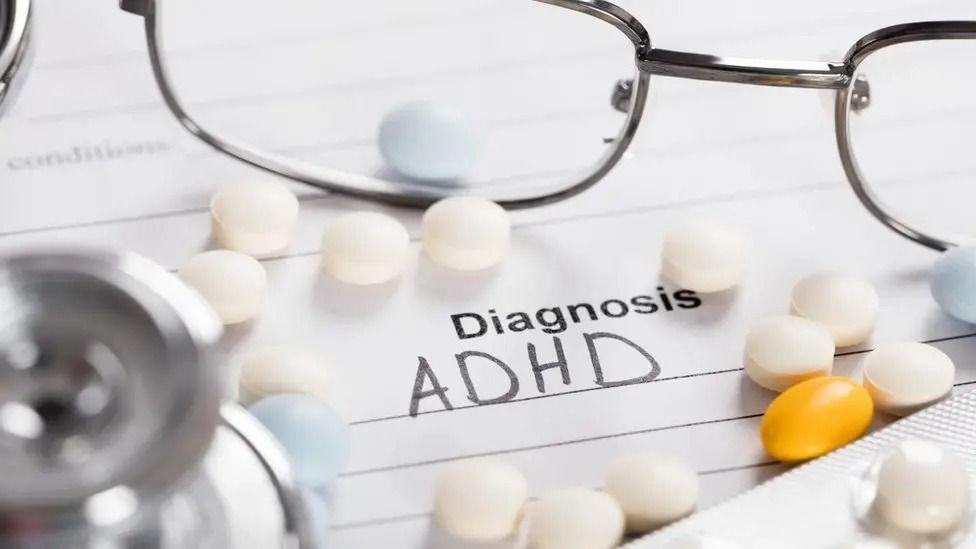
Waiting times for ADHD diagnoses have fallen from three years
- Published
Some children are still waiting more than two years in Surrey for a diagnosis of attention deficit hyperactivity disorder (ADHD) latest figures show, down from three years previously.
New figures show 3,084 youngsters are waiting for diagnostic assessments for ADHD, autism, or a dual diagnosis.
Mindworks, a group of providers supporting children with neurodivergent (ND) needs, say additional resources have been introduced to reduce the backlog and waiting times have come down.
They say partner agencies are starting to contact families of children who are waiting, to offer guidance and advice, starting with those who have been on the list the longest.
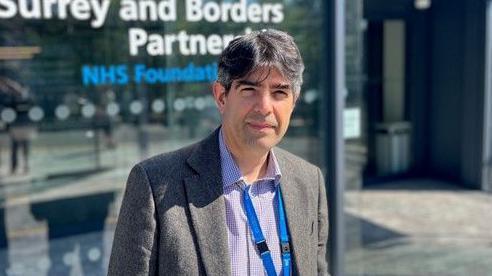
Graham Wareham from Surrey and Borders Partnership NHS Foundation Trust says backlogs have reduced
Last year new referrals were paused for several months, while clinicians dealt with a backlog of cases.
The pathway then re-opened accepting new referrals under new criteria, with schools leading on general referrals into these services. If there's a safeguarding concern, GPs and other professionals can still make urgent referrals, the NHS says.
Prior to the change, the service accepted referrals from practices, schools and other health and care professionals.
Graham Wareham, chief executive of Surrey and Borders Partnership NHS Trust, a Mindworks partner, said the situation had improved.
"What we've seen since then is a reduction in waiting times and caseload, however, I still recognise many children and families feel they're still waiting too long for a service and there's more transformation work to be done.
"Children receive support prior to diagnosis, but there are clearly long delays for medical diagnosis, which we accept and we're looking to address," he added.
Youngsters are currently waiting for two years and 25 weeks for an ADHD diagnostic assessment, which is down from three years earlier this year, Mindworks figures show.
The wait is one year and 38 weeks on average for children with suspected autism.
Children waiting for the dual autism and ADHD assessment can be on a waiting list for one year and 51 weeks.
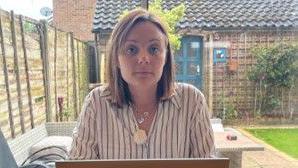
Sarah Wells is a Surrey head teacher and a parent of a child with autism
Sarah Wells, whose son waited 20 months to be assessed for autism, and is also a primary school head teacher in Surrey, has seen the impact of the waiting times.
"Two years is a very long time to wait if you've got a child who's struggling on a daily basis," she said.
"I had to do quite a bit of chasing, I couldn't really understand why it was taking so long and I kept being moved from department to department, so there was ongoing frustration."
Ms Wells said her own school had adapted to support children with neurodivergent needs.
"We've used ear defenders and quiet spaces, but for some children those strategies are not enough, sometimes children do need additional adult support and we don't always have the adults to do that," she said.
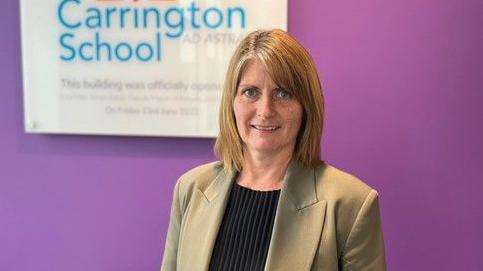
Kerry Oakley says counsellors are used to support children at her secondary school
Secondary school head teacher Kerry Oakley said: "Lots of young people come through from Year 5 and Year 6 without a diagnosis and we have to look at what support we can put in within our own school systems."
Ms Oakley, head teacher at Carrington Secondary in Redhill said: "We have increased our emotional support and we have counsellors.
"Sometimes we need to be able to refer them on and they need more professional support and often we find there becomes a delay," she said.
Last year, ADHD was the second most viewed condition on the NHS website.
Concern about this rising demand has prompted the NHS in England to set up a taskforce, external.
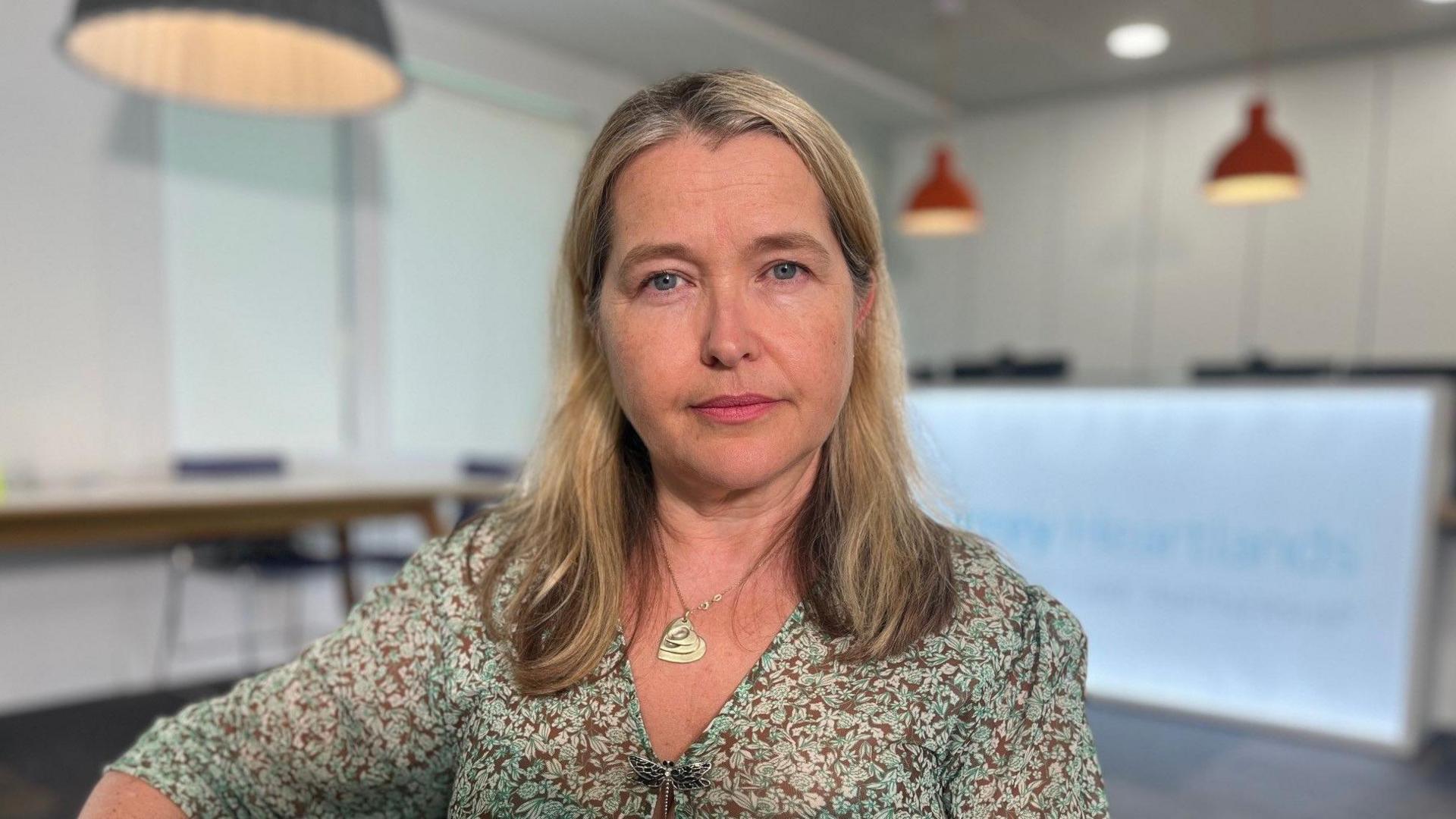
Dr Charlotte Canniff says more diagnostic staff have been recruited to help with assessments
Charlotte Canniff, joint chief medical officer at Surrey Heartlands Integrated Care System, which funds Mindworks, said national demand for ADHD assessments had doubled since 2019.
"I don't think we really understand why there's been such a large increase. Some of it is felt to be about the increase in awareness around the symptoms, and some people think the Covid pandemic might have triggered a surge in presentation."
Dr Canniff, who is also a GP, said: "We have already invested more into our diagnostic capacity and the workforce, with the neuro diversity professionals we've put into schools."
Mindworks also has 13 mental health support teams that provide additional support for those schools with higher levels of need.
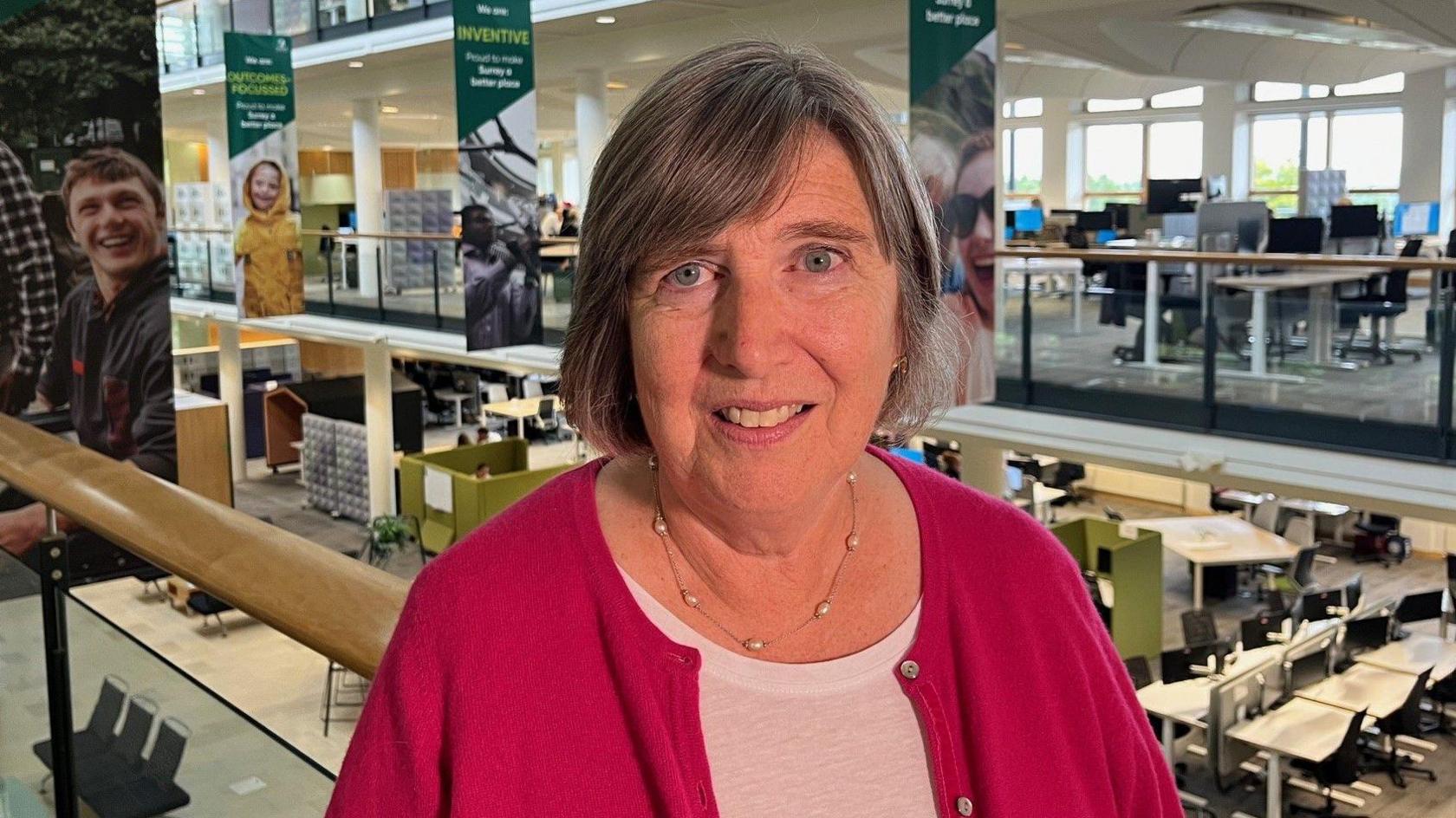
Clare Curran from Surrey County Council says more young people have needed mental health support since the pandemic
Clare Curran, cabinet member for children, families and lifelong learning at Surrey County Council, said: "Two years ago we raised this mental health levy on the council tax to raise extra money, to make sure we could be able to put mental health workers in schools.
"It's not just a problem in Surrey, this is a national problem and mental health has always been the poor relation of the health service," she said.
"What I am interested in is what we can collectively do in the future to make things better for children and families in Surrey."
A Department of Health and Social Care spokesperson said: “The NHS is broken – Lord Darzi’s report laid out how severe the delays for children waiting for ADHD and autism services have become.
"This government will work to fix this, so that no child who needs help misses out."
This story has been updated after publication to add further context on the referral process.
Follow BBC Surrey on Facebook, external, on X, external. Send your story ideas to southeasttoday@bbc.co.uk , external or WhatsApp us on 08081 002250.